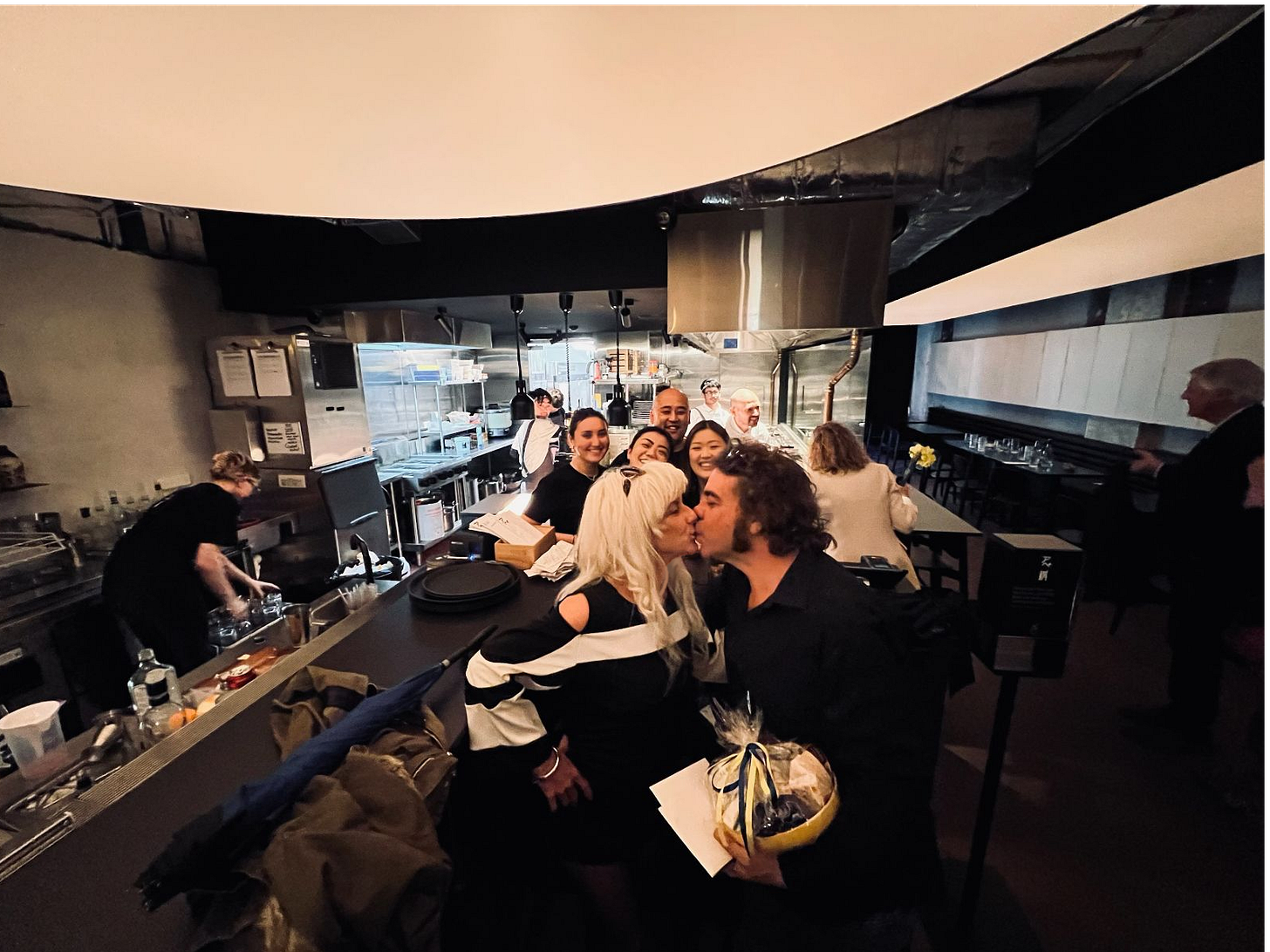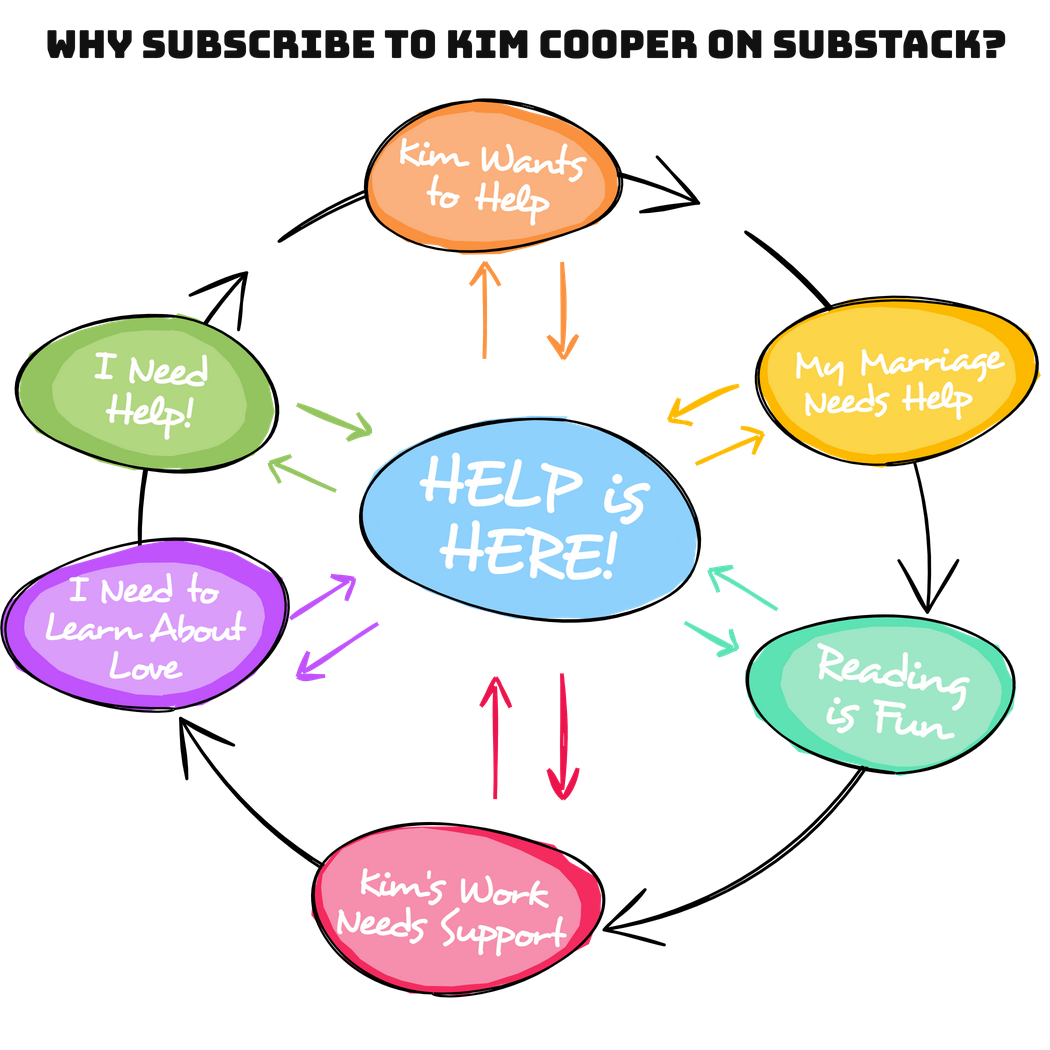After 18 years of online peer support work—gathering thousands of testimonials and a fair share of detractors—Kim Cooper learned the most important lesson of her career was not about helping others but facing her own shadow.
As a peer support specialist, in front of the camera, from 2007 Kim drew from her personal experience overcoming serious marriage challenges to help readers navigate similar struggles. Behind the scenes, she and her husband Steve were simultaneously overcoming alcoholism and obesity while together raising three beautiful children. But life success bred dangerous certainty.
“There’s a real danger in being an insufferable know-it-all doing peer support,” Kim admits. “Every little problem you solve in your life has you thinking you’re an expert.”
The wake-up call came when Kim realised she’d become the very thing she’d once needed rescuing from—someone who thought they had all the answers. So she did something rare in the advice industry: she shut down her work for 5 years to gain perspective and do her own shadow work.
“In time I decided that rather than continue giving advice, I would use my life experience to build a world that offered people empathy, and a place—led by their own inner guides—where we could learn and grow. A world that would not only help others but create a framework that would assist my own continued growth.”
That world has evolved and emerged as Everland—a fantasy realm where the real magic lies not in external rescue, but developing the inner tools for authentic self redemption and transformation. Drawing from folk religion, mythology, cutting-edge science, and hard-won wisdom about human development, Everland offers readers what Kim wished she’d had all along: a fun guide to becoming an authentic and capable grown-up.
“So here I am, a beginner once more, writing fantasy in my later years. Still opinionated, but with 30% more self-awareness of how far I still need to go in assisting myself to become a genuine adult. I have a hunch the Everland series will keep challenging me for another 20 years—and I can’t wait to see what together we discover there.” Kim Cooper
Economically, the average family is under more stress today than at any time since the Great Depression. Yet the threats that families face now are far broader than financial, with assaults on our emotional, physical and mental security being orchestrated by forces—aiming to divide us—that even a decade ago would have been unimaginable. How do we organise ourselves now?
Most of us feel the pressure but end up running in circles, pointing the finger of blame at each other while arguing about the cause:
men blame feminism;
women blame narcissism;
while bad psychology leaves most of us blaming our mothers.
This potentially deadly blame game has recently reached a crescendo with new hi-tech weaponry now upon us. Yet, in truth, husbands, wives, and mothers are, ultimately, not to blame. Men and women must urgently unite to defend themselves and their families.
Fifteen years online with close to 2000 testimonials, the Cooper’s real-life desire for an understanding of love that might keep their family united has served as inspiration for many thousands of readers, all searching for similar answers: refugees from love’s battlefield: heartbroken, lost and completely bewildered at why loving each other has become so difficult.
Seek no further! Subscribe to Kim’s Substack channel and get access to Kim and Steve Cooper’s book previews, articles, podcasts and online advice.
Stay up-to-date
You won’t have to worry about missing anything. Every new Substack post-Kim makes will go directly to your email inbox.
Join the crew
Be part of an honest community of people who share your interests.
To learn more about the company that provides the tech for this newsletter, visit Substack.com.




